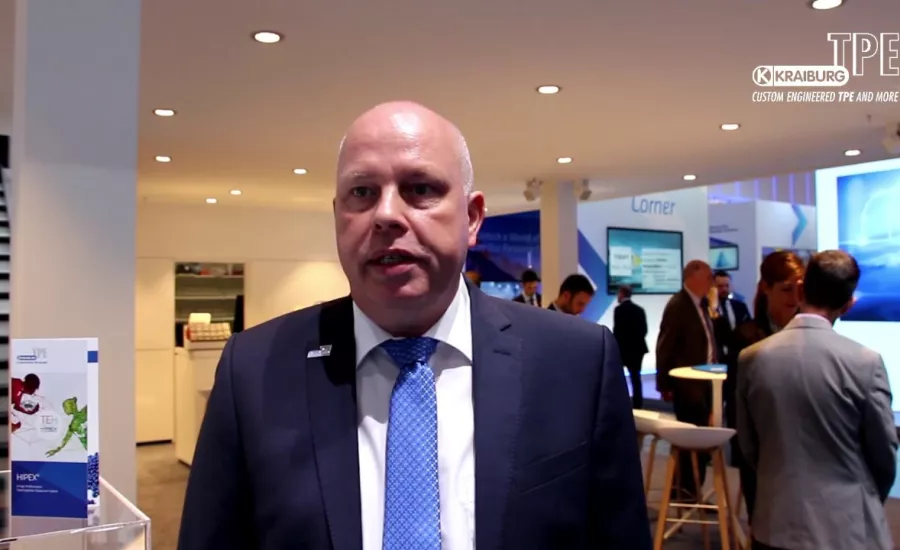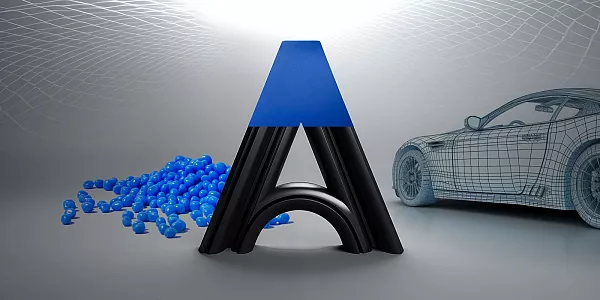A new performance class combines the advantages of TPEs and elastomers
KRAIBURG TPE will be presenting a flexible material development platform for thermoplastic elastomer hybrids at K 2019
KRAIBURG TPE has introduced an advanced new technology platform for thermoplastic elastomer hybrids (TEHs), to close the performance gap between thermoplastic elastomers and conventional elastomer compounds. The TEH compounds are tailor-made to fit customers’ specific applications. Combined with selected elastomers, the compounds provide the same features as elastomers while maintaining the favorable workability of TPEs. The company will be presenting this innovative technology in detail during the K 2019 trade fair held in Düsseldorf (Hall 6, Booths C-58-04 and E22)
TPE manufacturers have been trying all along to find ways of catching up with the performance of classic elastomers in their products. Although there have been a few successes with thermoplastic copolyester elastomers (TPCs) and thermoplastic polyamide elastomers (TPAs), it has not previously been possible to find a “universal super-TPE” that could match the properties of elastomers or rubbers. This is mainly due to the wide variety of typical applications in the field.
“To close the performance gap between established TPEs and elastomers, particularly in relation to thermal resistance, we are therefore taking an approach that focuses rigorously on applications and customers,” explains Dirk Butschkau, Head of Business Development EMEA at KRAIBURG TPE. “For example, we select the proportions of elastomers and thermoplastics in each compound on the basis of their specific compatibility and suitability for the required application temperature, chemical resistance and mechanical performance.”
The result is a “custom-engineered” TEH compound with a completely crosslinked elastomer component – which in contrast to conventional elastomer mixtures can be processed just as economically for injection molders of technical thermoplastics. The finishing that is usually necessary with most elastomers is not necessary and even sophisticated two-component applications with PP, PBT or PA can be implemented without bonding agents.
The new technology platform provides advanced TPE materials with a hardness range of 55 to 80 Shore A, with significantly improved performance based on different combinations of elastomers and thermoplastics. Along with excellent mechanical properties, the materials provide continuous operating temperatures up to 150 °C and outstanding chemical resistance to oils, greases, lubricants and fuels. In addition, they remain completely recyclable, as the material is not crosslinked during the production of moldings from TEH.
The thermoplastic workability of TEH compounds may reduce the cycle time at comparable wall thicknesses by up to 80% in comparison with elastomers. This means they provide not only an extremely cost-effective alternative but also a wide range of possible new applications. The processing and characteristics profile are aimed particularly at parts of engine covers, oil sumps, fuel filler caps and oil caps, as well as cooling and/or temperature control units. Additional examples are noise-absorbent and vibration-absorbent components in gearboxes, engines and pumps, and also includes connectors, screwed cable glands and fasteners. The initial successes include an application that is used in the lubrication circuit of a 2-liter diesel engine, in permanent contact with the engine oil and exposed to considerable amounts of diesel and blow-by gases during driving with a cold engine.
Following an extensive development phase and various basic research investigations, KRAIBURG TPE sees tremendous potential for further expansion of this new technology, which has only recently been introduced in the market. “We are currently testing the use of butyl rubbers to improve barrier properties and we’re following various approaches to achieve softer TEH ratings below 50 Shore A,” says Butschkau, adding: “The wide choice of thermoplastics also includes plastics such as PE, PBZ, PET, TPO and TPU to influence certain material properties in specific ways.”
Visitors to K 2019 are invited to join KRAIBURG TPE’s materials and market experts for a technical discussion at the think tank at Booth E22 in Hall 6 and see for themselves the advantages and opportunities that the new TEH technology offers.





